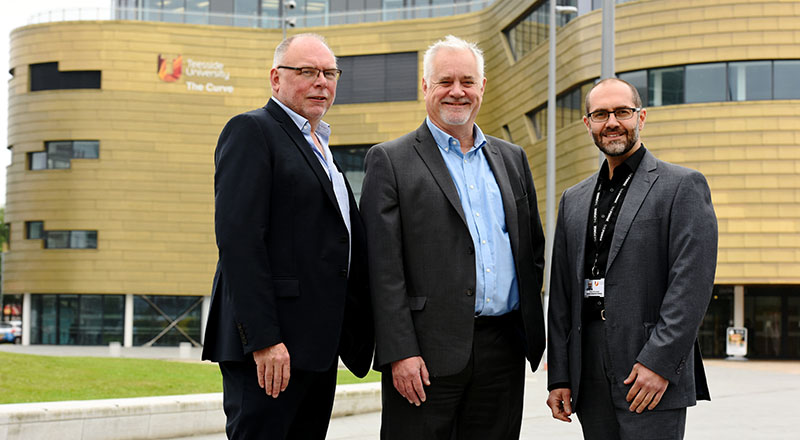Snack manufacturer makes efficiency savings thanks to Teesside University research
One of the UK’s leading manufacturers of snack foods has been helped to produce healthier crisps by changing its production processes thanks to the support of Teesside University.

The research is part of a £2 million project, part-funded by Innovate UK with partners Abertay University and Industrial Technology Systems Ltd, to research aspects of food quality control in potato and other food products
It has also resulted in an average 8% reduction in crisp oil levels and a decrease in acrylamides.
Acrylamide is a natural chemical produced when starchy foods, such as potatoes, are cooked at a high temperature. Prolonged exposure to acrylamides have been linked to health problems.
The collaboration was underpinned by the analytical capabilities of the National Horizons Centre, Teesside University’s new centre of excellence for the bioscience industries.
Professor Gary Montague, from the University’s School of Health & Life Sciences, said: “We undertook this project in anticipation of future regulation in the food manufacturing industry to reduce levels of acrylamides.
“The National Horizons Centre was established to facilitate the relationship between academia and the bioscience industries and the success of this research is proving that the facility is already beginning to make a huge impact.”
The research began by concentrating on the performance of the potato washing process to reduce sugar levels prior to frying.
Our organisation is very impressed with the level of knowledge and in-depth questioning that came for the University...The staff from the University were just like one of the on-site team.
Pilot scale trials undertaken by Teesside University investigated the impact of variations on washing temperatures on sugar content.
Using a double cold wash, rather than a cold followed by hot wash, for all but the highest sugar potatoes was found to be more effective and taste panel results proved that there was no discernible impact on the consumer experience.
The research also focused on the temperature variations throughout the frying process which had the potential to increase acrylamide production by up to four times.
The University postulated a new control strategy to simultaneously control both the fryer temperature at exit and the crisp moisture. This has removed variations in operator interventions, effectively handles production line start-ups and compensates for load variations.
A spokesman for the manufacturer, which is remaining anonymous, said: “Our organisation is very impressed with the level of knowledge and in-depth questioning that came for the University.
“It made us think a little more outside the box and helped challenge some of the assumptions we had made previously. The staff from the University were just like one of the on-site team.”
 Groundbreaking project to unlock nuclear energy's role in
...
Groundbreaking project to unlock nuclear energy's role in
... Start the new year by expanding your knowledge
Start the new year by expanding your knowledge  Teesside University strengthens long-standing partnership
...
Teesside University strengthens long-standing partnership
...